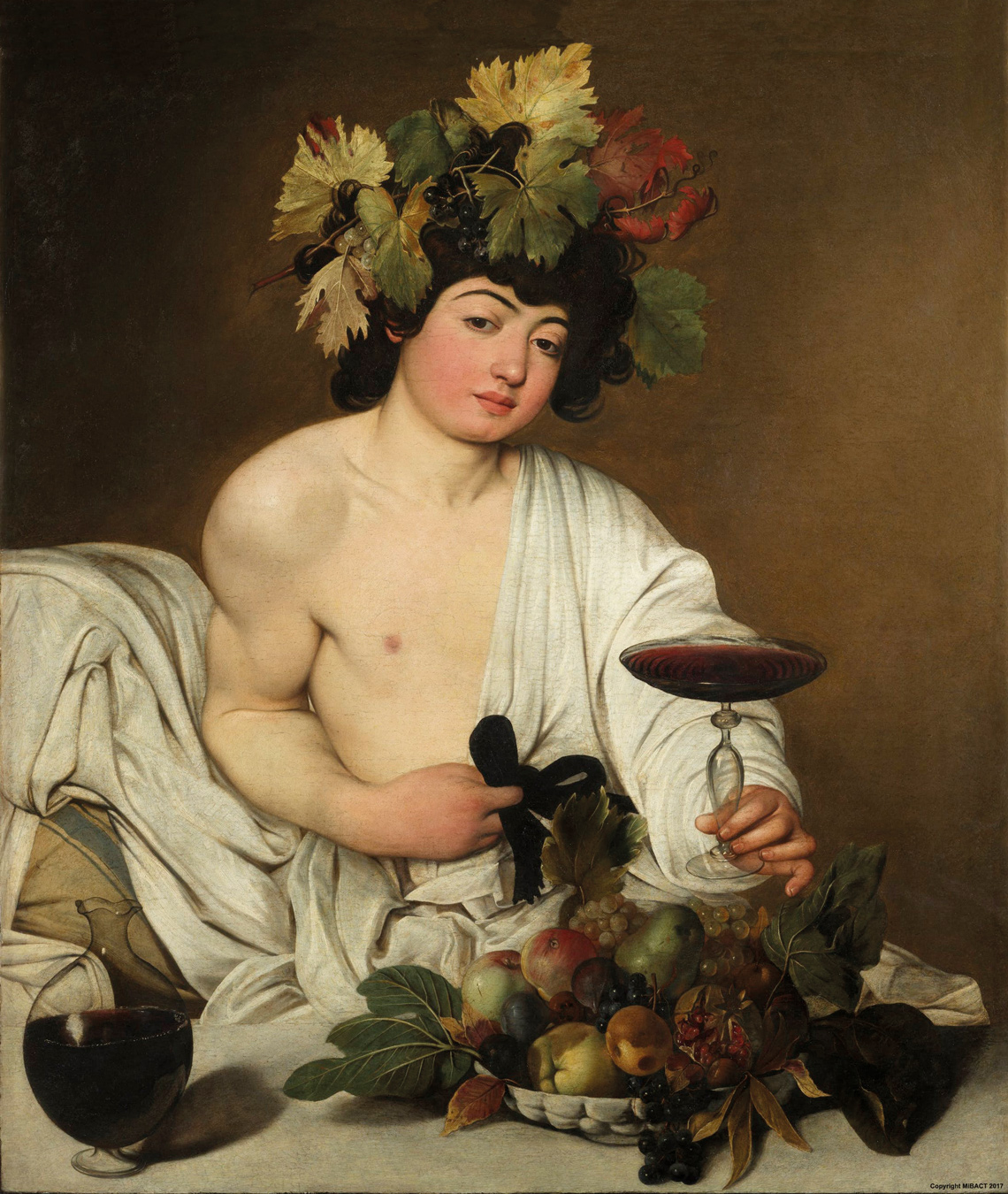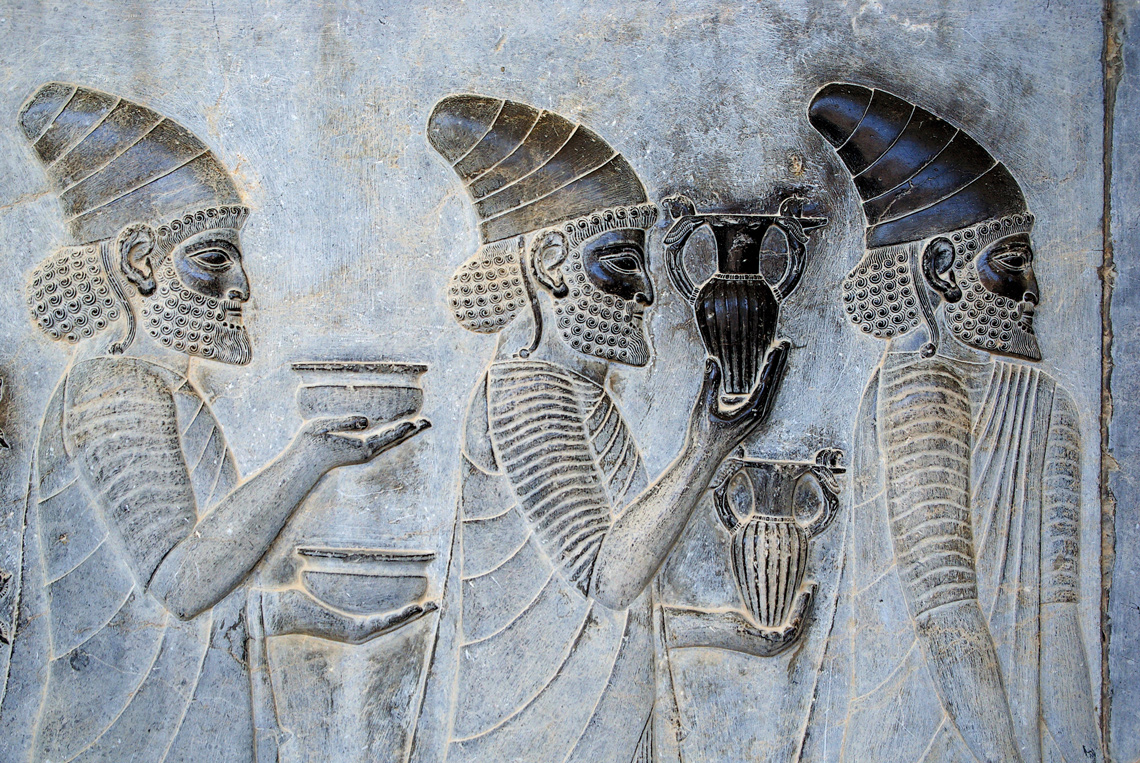Around 10,000 years ago, in the Neolithic period, marked by the emergence of the first cities and the start of the process of the domestication of plants for the birth of agriculture, man probably began to live more closely with an element from this new society: fermented alcoholic drinks (distilled drinks would appear thousands of years later). In 2004, the team led by US archaeologist Patrick McGovern, of Penn State University, used chemical methods to detect residues of fermentation produced using a mixture of rice, honey, and fruits, which could be described today as something between wine and sake, on pieces of 9,000-year-old pots found at the Jiahu archaeological site, in central-east China. This is the oldest known record of the production of an alcoholic drink.
In its long history, alcohol has become the most widespread psychoactive drug in societies. Linked to social interaction, metaphysical rituals, or religious ceremonies, alcoholic drinks have been present in all civilizations of the past and continue to be accepted in most countries in the world today, with the exception of little more than a dozen Islamic nations. In Mesopotamia, around 6000 years ago, the Sumerians already drank wine and beer, a habit immortalized in drawings made on stone tablets. In Ancient Egypt, beer was the drink of the people, and wine the elite.
Ancient Greece and, later, Rome, with its huge cultural influence, spread and legitimized the habit of drinking, especially wine, in the West. The term symposium, of Greek origin, today used to mean intellectual meetings with the aim of discussing a topic, originally meant to drink together—and this is what the influential men would do at the table after festive meals at wealthy homes. Christianity also played an important role in the dissemination of wine. The most cited plant in the Bible is the grapevine, and the first miracle attributed to Jesus is turning water into wine, a drink which would later be adopted as the blood of Christ in the Eucharist ceremony.

Uffizi Gallery / Wikimedia Commons Painting of Bacchus, the Greek god of wineUffizi Gallery / Wikimedia Commons
This spiritual dimension, linked to festivities, exists in the most diverse cultures. In the book Selvagens bebedeiras: Álcool, embriaguez e contatos culturais no Brasil colonial (séculos XVI-XVII) (Savage drinkers: Alcohol, drunkenness, and cultural tales in colonial Brazil [sixteenth and seventeenth centuries], Alameda Editorial, 2011), historian João Azevedo Fernandes (1963–2014), who was a professor at the Federal University of Paraíba (UFPB), discusses, for example, the production of cauim, a fermented manioc-based drink made exclusively by the women of indigenous peoples from Brazil. “Cauim was fundamental for the ceremonies that marked some of the most important moments in the lifecycle of the Tupinambá, such as weddings and funerals,” wrote Azevedo in his doctoral thesis on which he based the work.
Nowadays, the consumption of alcoholic drinks is not associated with Arabs, probably due to the large penetration, among these peoples, of Islam, which since the seventh century, based on the holy book of the Quran, began to condemn its consumption. But the term alcohol itself is of Arabic origin, like the word alembic [distilling apparatus]. It is not by chance that the Arabs are credited with introducing the process of distillation into Medieval Europe, around the tenth century, which consists of the separation of the constituents of a liquid mixture by its partial vaporization. This operation is the basis for the production of a category of drinks, the spirits, which include brandy, whisky, gin, and countless aguardientes.
Despite drunkenness, antisocial behavior, and possible physical harm having been associated with the excessive ingestion of fermented and distilled liquids at different moments throughout history and societies, alcohol, in its different forms, has been a companion of medical practice since Ancient history. Wines, beers, and spirits were used as attempts to soften bodily suffering, sometimes as if it were a medicine itself, sometimes as a vehicle in which to mix a treatment, or, in the case of more potent drinks, playing the role of modern-day anesthetics. Until the eighteenth century, it was safer to drink wine than the water that was available in the cities, as the fermentation killed part of the germs in the liquid.

Staatliche Museen zu Berlin, Ägyptisches Museum und PapyrussammlungRepresentation of beer consumption in Ancient EgyptStaatliche Museen zu Berlin, Ägyptisches Museum und Papyrussammlung
For historian Henrique Soares Carneiro, of the School of Philosophy, Languages and Literature, and Human Sciences at the University of São Paulo (FFLCH-USP), alcohol and drugs in general are one of the founding elements of human civilization for their economic, social, and cultural value. “Since the end of the nineteenth century, the history of drugs is, above all, the history of their regulations, of how they are authorized to circulate in societies and the policies of repression, incitement, and tolerance of their use,” comments Carneiro, coordinator of the Laboratory of Historical Studies on Drugs and Food at FFLCH. More than the possible health damage, prohibition of the use of certain substances in industrial society, as the historian explains in the book Drogas: A história do proibicionismo (Drugs: The history of prohibitionism; Autonomia Literária, 2018), happened for reasons that were religious or economic (not to affect the production of goods) in nature, or just for State control. The modern-day concept of three types of drugs was thus born: illegal drugs, legal medicinal drugs, and legal drugs for recreational use, such as tobacco and alcoholic drinks.
Despite sometimes resorting to economic or moral arguments, current discussions about how much alcohol a moderate drinker can drink are mostly part of the scientific debate regarding the (new) deleterious effects associated with this intoxicating substance. But there are also those who prefer to add sociocultural arguments to the equation, beyond the physical issues. “I am not a doctor, but from what I have read, I accept that alcohol is harmful to human beings in a physiological sense. However, if we look at people in a holistic manner, it may be that the effects of their moderate consumption are beneficial overall—that is, that the physiological damage is balanced or surpassed by emotional benefits, a feeling of well-being, of lubricated social relationships, or enjoying social events,” says historian Rod Phillips from New Zealand, a professor at Carleton University in Canada and author of books about the history of alcohol and wine, in an interview with Pesquisa FAPESP. “It is true that we do not need alcohol to get these benefits, but we have culturally gotten accustomed to using it for these purposes.”
Republish

